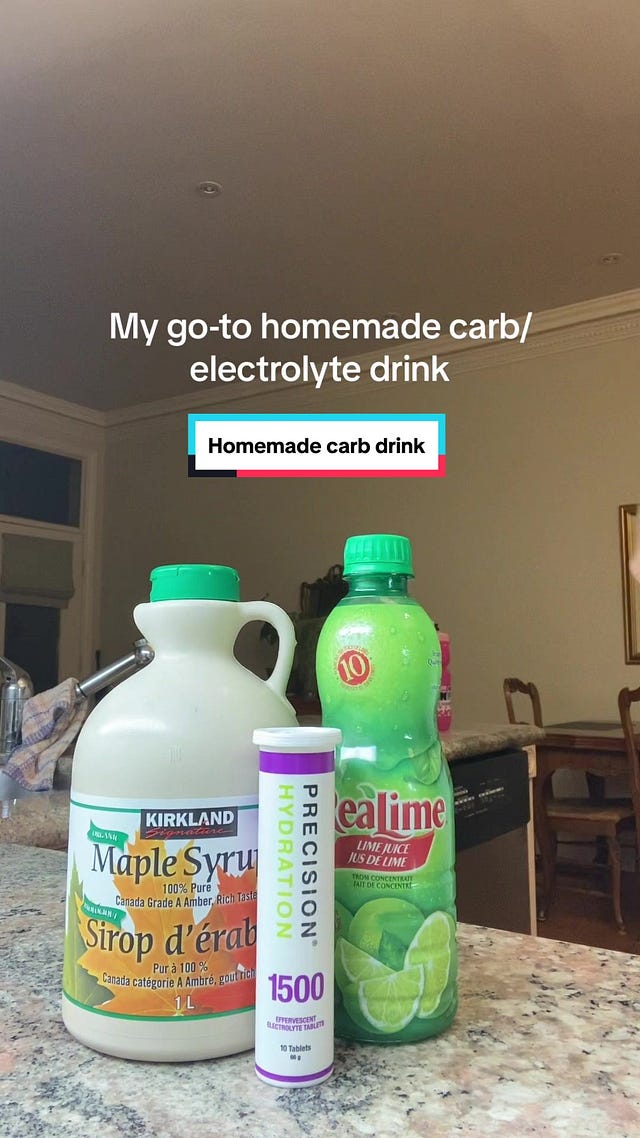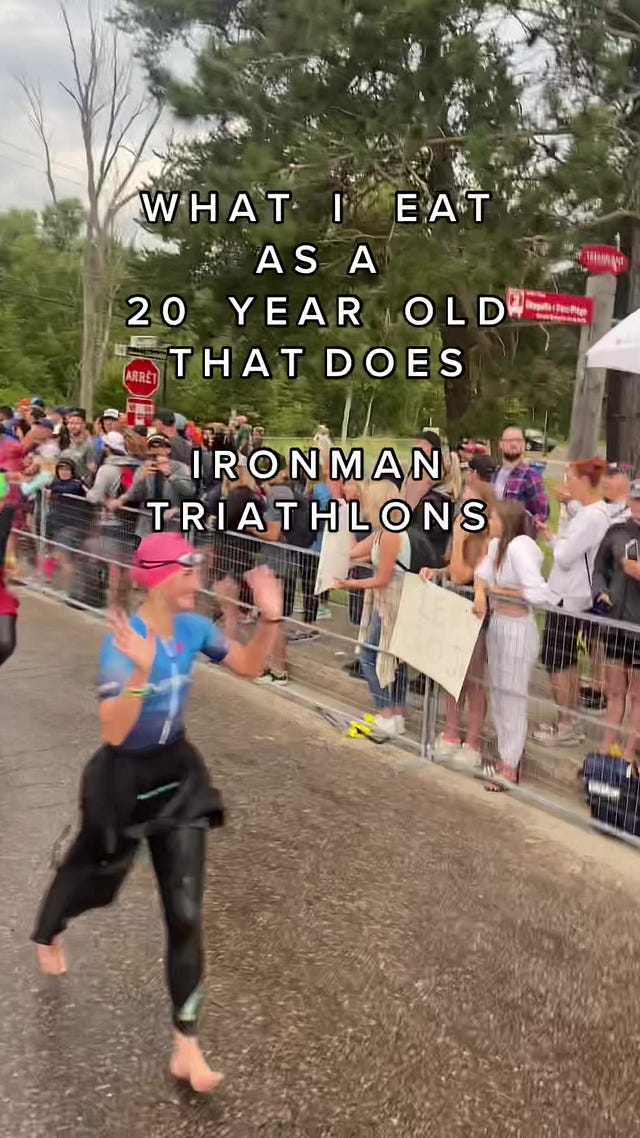Hey Friends 👋,
Welcome back to the LMT-LESS newsletter. If you’re new, put your email down below for weekly athletic advice, stories of me hurting myself, and to be a part of a community full of amazing athletes :)
Hope you enjoy this week's newsletter on nutrition for athletes.
Balanced Diet: My Approach 😋
Today, I'm going to give you a little sneak peek into how I think about food, especially with the crazy world of endurance sports like IronMan Triathlons. It's a whole different game when you start paying attention to what you eat, and I'm here to break it down for you, no stress, just real talk.
So, do I keep an eye on what I eat? Well, it's a bit of a 'yes and no' situation. I'm all about keeping things balanced – it's not like I'm counting every single calorie that goes into my mouth. Instead, it's about feeling good with what I eat and making sure it's doing the job. We'll dive into what this 'balance' thing really means in a bit.
My Diet: Mostly Plant-Based with Flexibility 🌱
I primarily follow a plant-based diet. Meat is not a common ingredient when I'm cooking, but I do include it occasionally, thanks to meals prepared by my mom (thanks, mom!). Overall, meat comprises about 10-15% of my diet.
Diet Composition: Keeping It Straightforward
Here's a quick rundown of my diet proportions:
Protein: 20-30%. Essential for maintaining muscle mass, especially for endurance athletes.
Carbs: 55-65%. They're the primary energy source for intense activities like triathlons.
Fats: 5-15%. They provide long-lasting energy and are crucial for overall health.
What I Eat: A Daily Snapshot
Breakfast: 2 cups of oatmeal, walnuts, dried fruits, peanut butter, and yes, maple syrup.
Lunch: A hearty rice bowl with lots of veggies, tofu, sometimes an egg, and plenty of pumpkin and hemp seeds for protein and fats.
Dinner: This is when I might have a meat-based meal, but it's not an everyday occurrence.
Snacks: Whatever I can get my hands on really - I’m not gonna lie, I eat so much brie cheese and crackers, that’s usually all I eat.
Nutrition During Workouts
Alongside my daily diet, it’s crucial to talk about the role of nutrition during training sessions. For endurance athletes like IronMan triathletes, what we consume during our training is as important as our regular diet.
It's not just about keeping the energy tank full; it's about ensuring that the right kind of fuel is used at the right time. Proper nutrition during training helps in maintaining energy levels, preventing muscle loss, and enhancing recovery. It's a delicate balance of timing and content—getting this right can be the difference between a good training session and a great one.
Now, let's explore how I navigate my day-to-day diet with this in mind.
Shorter Workouts (<75 Minutes): Just salt and water.
Longer Sessions: I consume about 60-70 carbs per hour, but this can vary based on individual needs.
Hydration Strategy: Crafting the Perfect Blend
My approach to hydration has evolved significantly over time. Initially, I relied on name brand liquid carbohydrates like MAURTEN, however, I made a strategic shift to a homemade solution (primarily because of cost)
The star ingredient of this concoction? Maple syrup. Not only does it add a natural sweetness, but it also provides quick-release energy, essential for long-distance events (AND IT JUST HAPPENS TO BE MY FAVOURITE).
 Tiktok failed to load.
Tiktok failed to load.Enable 3rd party cookies or use another browser
In the realm of endurance sports, managing electrolyte balance is just as crucial as calorie intake. During races, my salt consumption is substantially higher than the average person's needs.
This heightened intake is a tactical response to the large amounts of salt lost through sweat. Each athlete's sweat composition is unique, and understanding one's own can be a game-changer.
By ingesting salt in carefully measured doses, I aim to maintain electrolyte balance, which is vital for muscle function and overall hydration. This strategy is a delicate balancing act, ensuring that I stay hydrated and energized without overloading my system.
Closing Thoughts
As an Ironman athlete, I've learned that nutrition isn't just a part of training; it's a cornerstone of success. Each athlete's journey is unique, and there's no one-size-fits-all diet. The ratios of proteins, carbs, and fats that work wonders for me might not be the magic formula for everyone. It's crucial to understand that our bodies have different needs and react differently to various diets. What's important is finding a balance that fuels your body effectively, supports your training demands, and aligns with your personal health goals. This approach to nutrition is what works for me, but always remember to tailor your diet to what best suits your body and athletic objectives.
Lauren "All About Balance (and Maple Syrup)" Hogg
Q&A:
Q: Who are your role models in the space?
A: Lucy Charles-Barclay - Her journey resonates deeply with me, particularly her courageous comeback from injury. Witnessing Lucy step away from the sport, only to return with remarkable strength and claim the long course world championship, followed by a stunning second place at Kona, was nothing short of inspiring. Her story became a beacon of hope for me, especially knowing I was about to embark on a similar path of overcoming challenges with my hip surgery. Lucy's determination and success are powerful reminders that setbacks can pave the way for even greater achievements.
Poll:
JOIN THE PLAYLIST IF YOU’RE COOL:
FOLLOW MY SOCIALS IF YOU LIKE THIS CONTENT:
please :)




